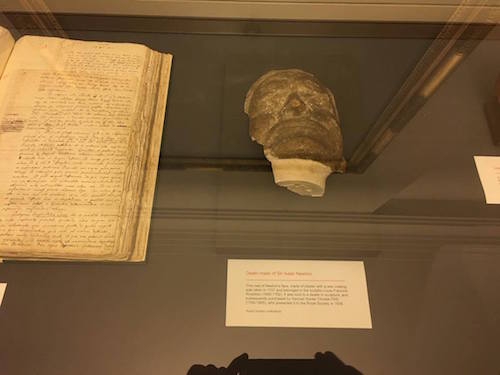 Evolution
Evolution
Royal Society Meeting: What Evolutionists Say When They Think Nobody’s Listening

Over at CNSNews, Discovery Institute philosopher of biology Paul Nelson and I explain how the recent Royal Society meeting in London vindicated a major and provocative claim in Stephen Meyer’s book Darwin’s Doubt.
This is a modified version of something we wrote earlier here at Evolution News. We begin:
Scientists Confirm: Darwinism Is Broken
Darwinian theory is broken and may not be fixable. That was the takeaway from a meeting last month organized by the world’s most distinguished and historic scientific organization, which went mostly unreported by the media.
The three-day conference at the Royal Society in London was remarkable in confirming something that advocates of intelligent design (ID), a controversial scientific alternative to evolution, have said for years. ID proponents point to a chasm that divides how evolution and its evidence are presented to the public, and how scientists themselves discuss it behind closed doors and in technical publications. This chasm has been well hidden from laypeople, yet it was clear to anyone who attended the Royal Society conference, as did a number of ID-friendly scientists.
Maybe that secrecy helps explain why the meeting was so muffled in mainstream coverage.
…
[W]hy should anyone care?
For one thing, the Royal Society, dating back to 1660, is a legend in the science world. Its founders included the great chemist Robert Boyle, and it was later headed for 24 years (1703-1727) by Isaac Newton — a fact that is hard to forget with Newton’s death mask on prominent display in a glass case. Portraits of Boyle and Newton look down from the walls above. So the historical connections lend a certain weight by themselves.
What’s really notable, however, is that such a thoroughly mainstream body should so openly acknowledge problems with orthodox neo-Darwinian theory. Indeed, though presenters ignored, dismissed, or mocked the theory of intelligent design, the proceedings perfectly illustrated a point made by our colleague Stephen Meyer, author of the New York Times bestseller “Darwin’s Doubt: The Explosive Origin of Animal Life and the Case for Intelligent Design.”
Meyer asserts a massive disparity between how strong and invulnerable to challenge many non-scientists assume Darwinian theory to be, and how feeble and conflicted it actually is. This is revealed when you peer behind the curtains shielding the internal debates among scientists. He writes in Darwin’s Doubt:
The technical literature in biology is now replete with world-class biologists routinely expressing doubts about various aspects of neo-Darwinian theory, and especially about its central tenet, namely the alleged creative power of the natural selection and mutation mechanism.
Nevertheless, popular defenses of the theory continue apace, rarely if ever acknowledging the growing body of critical scientific opinion about the standing of the theory. Rarely has there been such a great disparity between the popular perception of a theory and its actual standing in the relevant peer-reviewed science literature.
Read the rest here. You see, you only know this because we’re here to tell you what evolutionary biologists prefer to keep sotto voce.
Photo: Death mask of Sir Isaac Newton, Royal Society, London.
